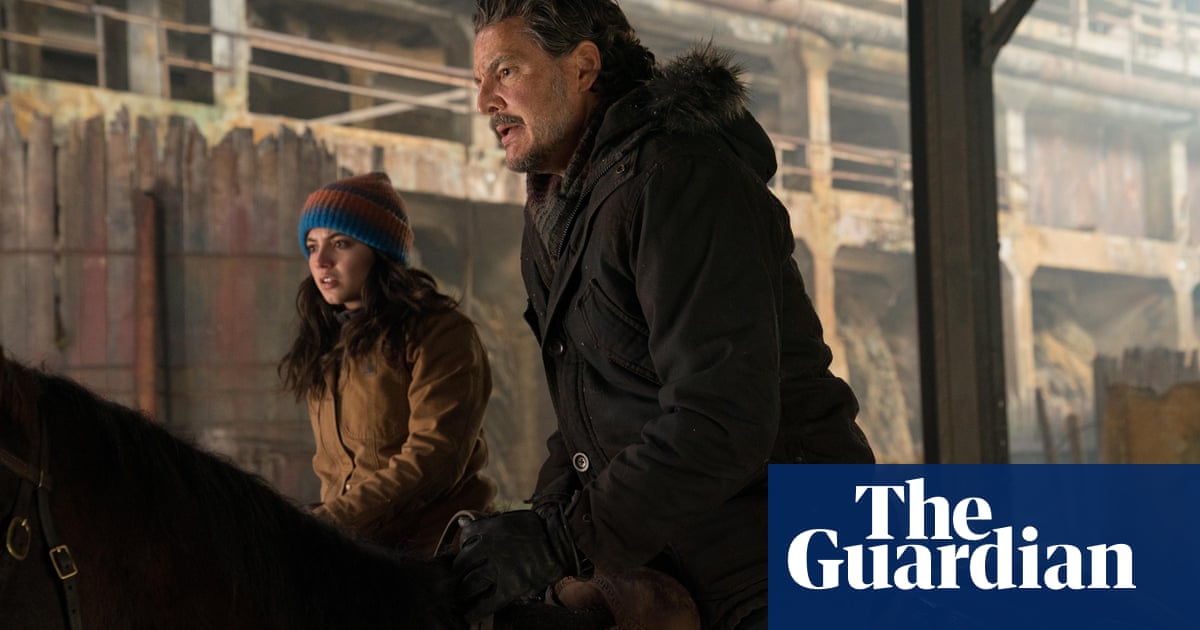This article contains spoilers for theThe Last of Usseason two. Please do not read unless you have seen the first two episodes.
When is a twist not a twist? This is a question many people will be asking after this week’s brutal episode ofThe Last of Us. Titled Through the Valley, it demonstrated more clearly than ever that the show has two types of viewer: those who primarily know it as a television series and were stunned beyond belief by the violent, unheralded death of Pedro Pascal’s Joel at the hands of Kaitlyn Dever’s vengeful Abby; and those who have played the video game on which it is based.
The very first scene in last week’s episode appeared to set up Abby’s tracking of him as a long arc, perhaps one spanning the entire season. This would make sense; after all if you have Pedro Pascal at your disposal, you want to get as much out of him as possible. But in the end it was a deliberate red herring, and now Joel is dead. More importantly, the star of the show – the man whose face is still on hundreds of Last of Us billboards around the world – is no longer on the show. Judging by the shocked reaction online (“Players knew this WHOLE TIME that Joel was gonna die and didn’t warn me?!?”), Joel’s death came as roughlyThe Red Weddingtimes a million.
But, of course, many of us saw it coming. The second season of The Last of Us is based on the 2020 game The Last of Us Part II and, well, this exact thing happens in that too. Nor was it a closely guarded secret. The Last of Us Part II has sold more than 10m copies. It has won almost 50 awards. And, thanks to a hacking incident just before release, Joel’s death was announced to the world before anyone had even played it.
As such, Joel’s death has been an open secret for many years now. In 2023, Pascal all but revealed that his days were numbered to Esquire,pointing out that“it wouldn’t make sense to follow the first game so faithfully only to stray severely from the path”. Don’t say he didn’t warn you.
If you saw the climax to the first season, you will have known that this was probably on the cards. The story exists in a world where the human population has been laid waste by a fungus. Joel took charge of a young woman named Ellie, who revealed that she was somehow immune to the Cordyceps infection. Upon realising this, a group of strangers kidnapped Ellie, planning to use her to create a vaccine in an operation that would kill her. But Joel wouldn’t let this happen, going on a murderous rampage through a hospital to save her, even if it doomed the world.
It was an act of love, but a selfish one that couldn’t go unpunished. A season of television where Joel and Ellie kept having adventures in the shadow of such violence would have been awkward and ungainly. And this is a story where violence begets violence. The Fireflies tried to kill Ellie, so Joel killed the Fireflies, and now the daughter of one of the dead has killed Joel. So it goes.
The question of which of Joel’s deaths is the worst is up for debate. With the TV series, the fact that so many people knew this was coming meant that it could build a sense of dread far more deliberately than the game did, making more of the missed connections between Joel and Ellie and filling the preceding scenes of violence with more resigned inevitability. On the other hand, the game has you briefly play as Ellie, racing to save Joel. When that ends in disappointment and Joel dies anyway, there’s a palpable sense of agency being ripped from you that can’t be replicated in something as passive as a television programme.
Which brings me to one last spoiler for the non-players. The Last of Us is about to pull off its most audacious trick yet: making you root for Abby. It may be worth pointing out that The Last of Us Part II only semi-successfully achieved this – few games have received such a loud backlash from such a furious minority – so it will be interesting to see how the show chooses to do this. If The Last of Us can move on from Joel’s death and take the audience with it, it deserves to go down as a masterpiece.
